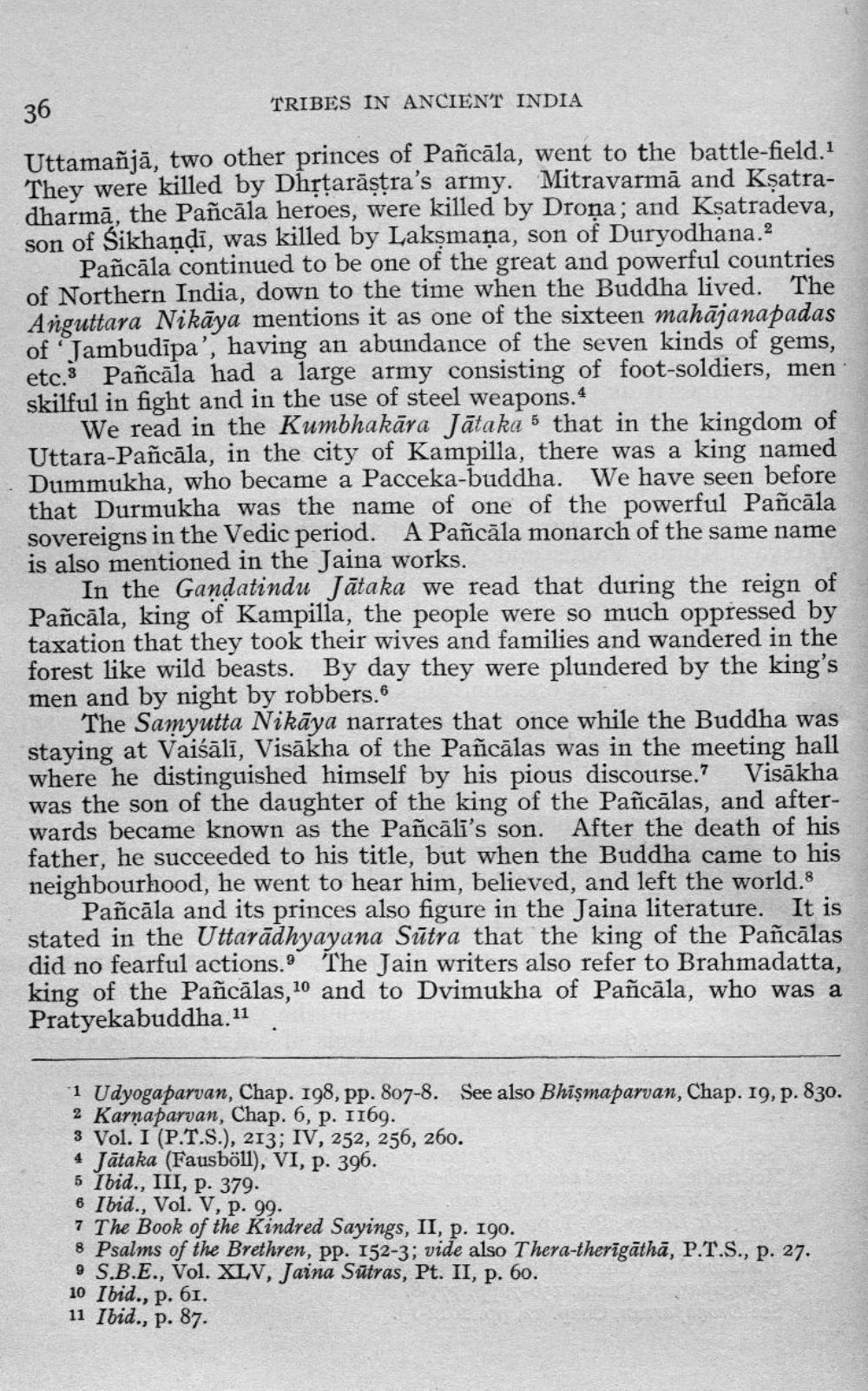________________
36
TRIBES IN ANCIENT INDIA
Uttamañjā, two other princes of Pañcala, went to the battle-field.1 They were killed by Dhṛtaraṣṭra's army. Mitravarma and Kṣatradharma, the Pañcala heroes, were killed by Drona; and Kṣatradeva, son of Sikhandi, was killed by Lakṣmaṇa, son of Duryodhana.2
Pañcala continued to be one of the great and powerful countries of Northern India, down to the time when the Buddha lived. The Anguttara Nikaya mentions it as one of the sixteen mahajanapadas of Jambudipa', having an abundance of the seven kinds of gems, etc. Pañcala had a large army consisting of foot-soldiers, men skilful in fight and in the use of steel weapons.
We read in the Kumbhakara Jātaka 5 that in the kingdom of Uttara-Pañcāla, in the city of Kampilla, there was a king named Dummukha, who became a Pacceka-buddha. We have seen before that Durmukha was the name of one of the powerful Pañcāla sovereigns in the Vedic period. A Pañcala monarch of the same name is also mentioned in the Jaina works.
In the Gandatindu Jātaka we read that during the reign of Pañcala, king of Kampilla, the people were so much oppressed by taxation that they took their wives and families and wandered in the forest like wild beasts. By day they were plundered by the king's men and by night by robbers.6
The Samyutta Nikaya narrates that once while the Buddha was staying at Vaiśāli, Visakha of the Pañcalas was in the meeting hall where he distinguished himself by his pious discourse." Visakha was the son of the daughter of the king of the Pañcālas, and afterwards became known as the Pañcali's son. After the death of his father, he succeeded to his title, but when the Buddha came to his neighbourhood, he went to hear him, believed, and left the world.
Pañcala and its princes also figure in the Jaina literature. It is stated in the Uttaradhyayana Sutra that the king of the Pañcālas did no fearful actions. The Jain writers also refer to Brahmadatta, king of the Pañcālas, 10 and to Dvimukha of Pañcala, who was a Pratyekabuddha.11
1 Udyogaparvan, Chap. 198, pp. 807-8. See also Bhismaparvan, Chap. 19, p. 830. 2 Karnaparvan, Chap. 6, p. 1169.
3 Vol. I (P.T.S.), 213; IV, 252, 256, 260.
4 Jātaka (Fausböll), VI, p. 396.
5 Ibid., III, p. 379.
6 Ibid., Vol. V, p. 99.
7 The Book of the Kindred Sayings, II, p. 190.
8 Psalms of the Brethren, pp. 152-3; vide also Thera-therīgāthā, P.T.S., p. 27.
9 S.B.E., Vol. XLV, Jaina Sutras, Pt. II, p. 60.
10 Ibid., p. 61. 11 Ibid., p. 87.




